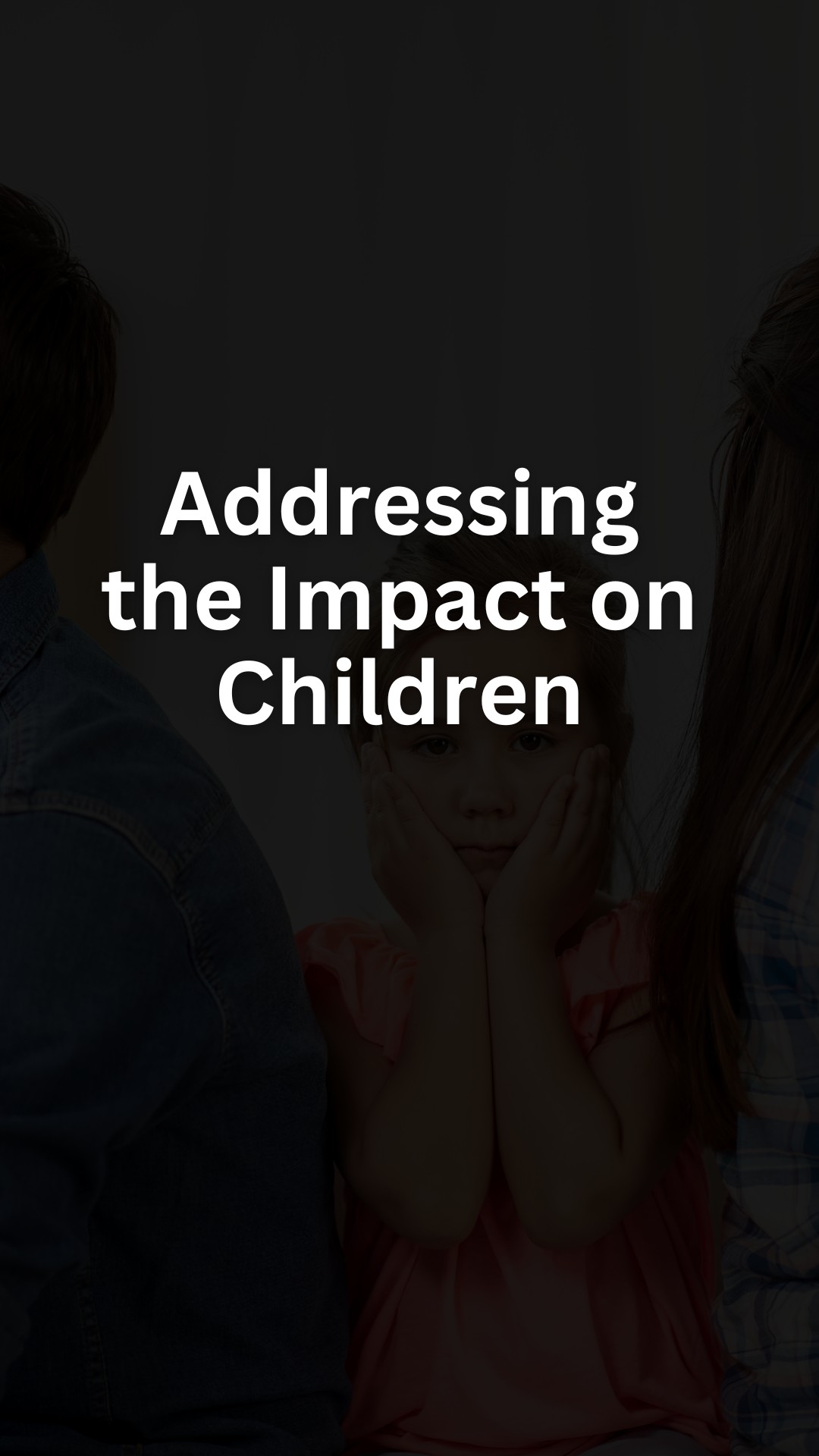Holidays after a divorce can be challenging, but you can find ways to navigate them with grace and ease.
Setting new traditions can create fresh, positive memories and help you move forward.
You might feel a mix of emotions, and that’s okay. Accepting your feelings is a step toward healing.
When planning your holidays, keep things simple. Avoid overwhelming yourself with too many activities or obligations.
Prioritize spending time with those who support and uplift you.
It’s important to focus on what brings you joy and comfort during this time.
Don’t hesitate to seek support.
Connecting with friends, family, or even support groups can provide the emotional backing you need.
Remember, it’s okay to create new traditions and put your well-being first. By doing so, the holidays can become more manageable and even enjoyable.
Understanding the Emotional Impact of Divorce During Holidays

Holidays can amplify feelings of loneliness, sadness, grief, and loss after a divorce. These emotions can make it hard to enjoy the festive season.
Navigating Loneliness and Sadness
During the holidays, feeling lonely and sad is common. You might miss the traditions you once shared with your ex-partner.
To cope, try creating new traditions.
Invite friends or family over for a holiday meal, watch your favorite movies, or volunteer in your community.
Being around people who care about you can help ease the loneliness.
Sometimes, taking a break from social media can help too.
Seeing pictures of seemingly perfect families and celebrations can make you feel worse.
Focus on the present moment and what you can do to make yourself feel better.
Dealing with Grief and Loss
Grieving the loss of your marriage is natural during holidays. Try to acknowledge your feelings instead of ignoring them.
Talking to a therapist or a support group can provide comfort.
Sharing your experiences can make you feel understood and less alone. Journaling your thoughts and emotions can also help.
Remember to take care of yourself.
Exercise, eat well, and get enough sleep. These activities can improve your mood and health.
It’s okay to feel sad, but also make an effort to find small joys in the season.
Creating New Traditions Post-Divorce

Adjusting to holidays after a divorce can be challenging, but creating new traditions can make them enjoyable again.
You can celebrate on your own or add self-care routines to make the holidays special and meaningful.
Solo Celebrations
Celebrating alone can be empowering. You have the freedom to do what you enjoy.
Consider planning activities that make you happy.
Start a new hobby, watch your favorite movies, or cook your favorite meals. You might visit a place you’ve always wanted to see.
Spending the holidays on your terms can be a refreshing change.
If you have children, plan unique activities with them.
Create new holiday rituals, like decorating together or making gifts.
This helps children feel secure and creates positive memories.
Incorporating Self-Care Routines
Self-care is essential, especially during the holidays. It helps you feel grounded and content.
Make a list of self-care activities.
Take time for activities like exercise, meditation, or reading.
Pamper yourself with a spa day at home or enjoy a relaxing bath.
Plan moments to rest and recharge.
Give yourself the gift of peace and relaxation.
By incorporating these routines, you ensure that the holidays are a time of personal growth and well-being.
Managing Logistics with Children

Handling holiday plans after a divorce can be stressful, especially when children are involved. It’s crucial to coordinate schedules and maintain open communication with your ex-partner to ensure smooth and enjoyable holidays for your kids.
Coordinating Holiday Schedules
When planning holiday schedules, the first step is to discuss and agree on how to split time with your children.
Use a calendar to outline important dates.
- Plan in advance: Start discussions early to avoid last-minute conflicts.
- Alternate holidays: Decide which holidays each parent will spend with the children each year.
- Be consistent: Stick to the schedule to provide stability for your kids.
Creating a written plan can help clarify expectations and reduce misunderstandings.
If necessary, involve a mediator to assist with negotiations.
Communicating with Your Ex-Partner
Good communication with your ex-partner is key to managing your children’s holiday plans.
Here are some strategies to help:
- Keep it respectful: Maintain a polite and respectful tone in all conversations.
- Use clear language: Be specific about dates, times, and locations to avoid confusion.
- Stay child-focused: Make decisions based on what is best for your children.
Using tools like shared calendars or co-parenting apps can help keep everyone organized and informed.
Remember, staying calm and cooperative benefits your children most.
Setting Boundaries and Communicating Needs

Understanding how to set boundaries and clearly communicate your needs is important after a divorce. These steps help to protect your emotional well-being during the holidays.
Protecting Personal Space
After a divorce, maintaining your own space can be challenging, especially during holidays.
Clearly state your need for time alone and space to reflect.
If you feel overwhelmed, it’s okay to step away and take a breather.
This might mean saying no to some events or limiting the hours you spend at gatherings.
Create a plan that includes personal time.
This helps to ensure you’re not overcommitting.
Discuss this with family and friends beforehand so they understand your need for personal space.
Respect your own limits by not feeling guilty for prioritizing your needs.
Assertive Communication with Family
When talking to family, be clear and direct about your needs.
Use “I” statements to express how you feel, like “I need some time alone this holiday season.”
This approach reduces chances of family members feeling attacked or blamed.
- Be direct: Clearly state what you need.
- Use ‘I’ statements: Focus on your feelings.
- Keep it simple: Avoid over-explaining.
- Listen actively: Pay attention to the responses of others.
Being assertive does not mean being aggressive. It’s about being firm and clear while being respectful.
Financial Considerations During the Holidays

Divorce can change your financial situation. During the holidays, it is important to plan and budget carefully.
Create a Holiday Budget
- List all holiday expenses: gifts, decorations, food, travel.
- Set a limit for each category.
- Stick to your budget to avoid stress.
Prioritize Spending
- Focus on meaningful gifts rather than expensive ones.
- Consider homemade or personalized gifts.
- Plan low-cost holiday activities, like watching movies at home or visiting local events.
Share Costs with Your Ex-Partner
- Discuss sharing the cost of children’s gifts.
- Split expenses for holiday events or activities involving your kids.
Save on Travel
- Book trips early to find the best deals.
- Consider staying with family or friends instead of hotels.
Keep Track of Spending
- Use an app or spreadsheet to monitor holiday expenses.
- Adjust your spending if you go over budget in one area.
Encourage Children to Understand Finances
- Teach them the value of money by setting a gift budget.
- Help them choose affordable gifts for others.
Staying Connected with Loved Ones

During the holidays, staying connected with your loved ones can help you feel supported and less lonely. Whether by reaching out to friends and family or using technology, maintaining these bonds can make a big difference.
Reaching Out to Friends and Family
Making an effort to reach out to friends and family during the holidays can provide a sense of closeness.
You can start by planning small get-togethers or even casual coffee breaks with close friends. These moments can uplift your spirit and make you feel less isolated.
Calling or texting loved ones regularly lets them know you’re thinking of them.
If you’re feeling down, don’t hesitate to share your feelings. True friends and supportive family members will welcome your honesty.
Creating traditions with family can also help.
For instance, you might include a movie night, cooking a favorite meal together, or even going for a walk.
These shared activities can strengthen your bond and create new memories.
Utilizing Technology for Connectivity
Technology offers many ways to stay in touch with loved ones, even from a distance.
Video calls through apps like Zoom, Skype, or FaceTime can make you feel more connected. Seeing each other’s faces can provide comfort and make conversations more personal.
Group chats are another great option.
You can create a group on apps like WhatsApp or Facebook Messenger to share updates, photos, and holiday greetings with multiple family members or friends at once.
Social media can also keep you connected.
By sharing your holiday moments on platforms like Instagram or Facebook, you stay in the loop with friends and relatives.
Just be sure to balance your screen time to avoid feeling overwhelmed.
Addressing the Impact on Children

Divorce can be tough on kids, especially during the holidays. They often feel caught between both parents.
Communication is key. Talk to your children about what to expect. Let them share their feelings and worries.
Create new traditions. This can help make the holidays feel special again. Maybe start baking cookies together or have a movie night.
Consistency helps. Kids thrive on routine. Try to keep some things the same, like bedtimes or morning rituals.
Be honest but age-appropriate. Explain the situation in a way they can understand. Reassure them that both parents love them.
Use a calendar. Mark when they will be with each parent. This can help them feel prepared and reduce anxiety.
Encourage open expression. If they feel sad or angry, let them know it’s okay. They need to feel safe sharing their emotions.
Avoid negative talk about the other parent. It can be really harmful to kids. Keep conversations positive and focus on the good times ahead.
Seek support. Therapists or support groups can be great resources. They provide a safe space for children to process their feelings.
Being patient is essential. Remember, your children are adjusting just as much as you are. They need your love and reassurance more than ever.
Taking Care of Your Mental Health

During the holidays after a divorce, focusing on mental health helps you navigate emotions and stress. It’s important to seek support and practice methods to relax and stay mindful.
Seeking Professional Support
Finding a therapist or counselor can be very beneficial.
These professionals understand the emotional challenges of divorce.
They can help you process your feelings and develop coping strategies.
Connecting with a mental health expert provides a safe space to talk about your experiences without judgment.
Support groups offer a sense of community. Being with others who have similar experiences can lessen feelings of isolation.
Look for local groups or online communities where you can share and learn from others.
Health insurance often covers counseling sessions. Check your policy to see what services are available.
Mindfulness and Relaxation Techniques
Practice mindfulness to keep yourself grounded. Spend a few minutes each day focusing on your breathing. This can help reduce stress and keep you centered during chaotic times.
Yoga and meditation are also great tools for relaxation. Simple poses and meditation exercises can calm your mind and body. Many resources, like apps or online videos, can guide you through these practices.
Setting aside time for yourself is crucial. Engage in activities you enjoy, such as reading, painting, or walking in nature. These moments of self-care can provide peace and joy.
Exploring Personal Growth and New Opportunities

After a divorce, the holidays can be a time to focus on your own growth. You can discover new activities and set fresh goals for the coming year to make this period meaningful.
Pursuing Hobbies and Interests
This is a great chance to dive into hobbies you’ve always wanted to try. Have you been interested in painting, hiking, or learning a new language? Now is the time to start! Taking up hobbies can help distract from holiday stress and provide joy.
Joining clubs or groups related to your interests can also help you meet new people. Socializing in this way can expand your support network. It’s not only about keeping busy; it’s also about finding joy and fulfillment in new activities.
Setting Goals for the New Year
Setting new goals can provide a sense of direction and purpose. Think about what you want to achieve in the next year. These can be personal, like getting fit, or professional, like advancing in your career. Write them down and make a plan to reach them.
Breaking goals into smaller, manageable steps can make them less overwhelming. Celebrate your progress along the way. This can boost your confidence and make the holidays feel like a time of new beginnings, rather than reflections on the past.
Handling Encounters with Your Ex-Partner

Facing your ex-partner during holidays can be stressful. Knowing what to expect and how to act can help ease these interactions.
Public Events and Mutual Friends
When you see your ex-partner at public events, it’s important to remain calm. Try to act friendly but keep the conversation short. This makes it easier for both of you. Focus on enjoying the event and connecting with other friends.
When mutual friends are involved, things can get complicated. Let your friends know you want to avoid drama. If they plan events, ask for a heads-up if your ex will be there. This helps you prepare mentally.
You may feel nervous or awkward, but remember it’s okay to take breaks from the crowd. Step outside for fresh air if you need it. This helps you stay calm and collected.
Cultivating Gratitude and Positive Reflection

When holidays are hard, focusing on gratitude can help. Take a moment each day to list things you are thankful for. This can shift your mindset to more positive thoughts.
Try keeping a journal. Write down happy memories or small joys. This habit can boost your mood over time. It’s a great way to see how much good there still is in life.
Practice self-compassion. Be kind to yourself during this period. It’s okay to feel sad, but don’t forget to celebrate your strengths and progress.
Spend time with loved ones who lift you up. Their support and presence can be comforting. Share laughs, stories, and create new memories together.
Volunteer or help others in need. Giving back can remind you of your blessings and bring a sense of purpose. It doesn’t have to be big—small acts of kindness count too.
Create new traditions. Start something fresh that brings you joy. It could be watching a new movie, baking cookies, or taking a walk in nature.
Use affirmations. Simple phrases like “I am strong” or “I am grateful” can build a positive mindset. Say them out loud or write them down where you can see them every day.
Mindfulness and meditation can also be beneficial. Take deep breaths and stay in the moment to reduce stress and appreciate the present.
Frequently Asked Questions

Divorce can make holidays difficult, especially when you have kids. Here are some specific tips on managing feelings, scheduling, and creating new traditions.
How can one manage feelings of loneliness during the holidays post-divorce?
Reach out to friends and family. Plan activities ahead. Volunteering can help you feel connected and involved.
What strategies can help parents create a fair holiday schedule for their children after a divorce?
Discuss plans well in advance. Be flexible and willing to compromise. Consider alternating holidays yearly.
What tips can assist in the first celebration of a holiday without a former spouse?
Focus on new traditions. Do something you enjoy. Spend time with close friends or relatives.
How should co-parents approach the tradition of Santa Claus after their separation?
Communicate and agree on how to handle Santa gifts. Ensure consistency between both households. Make sure your child feels the magic of the tradition.
What ways can divorced parents maintain holiday cheer for their child?
Keep routines familiar. Celebrate with enthusiasm. Create joyful and relaxed moments.
How can individuals rebuild new holiday traditions after a marital split?
Try new activities that interest you. Embrace new experiences with loved ones.
Build traditions that reflect your new lifestyle.